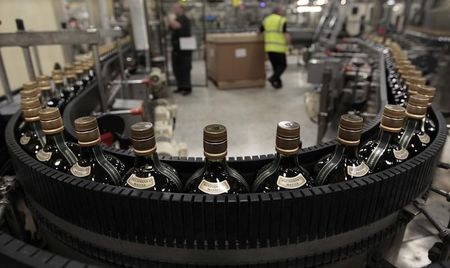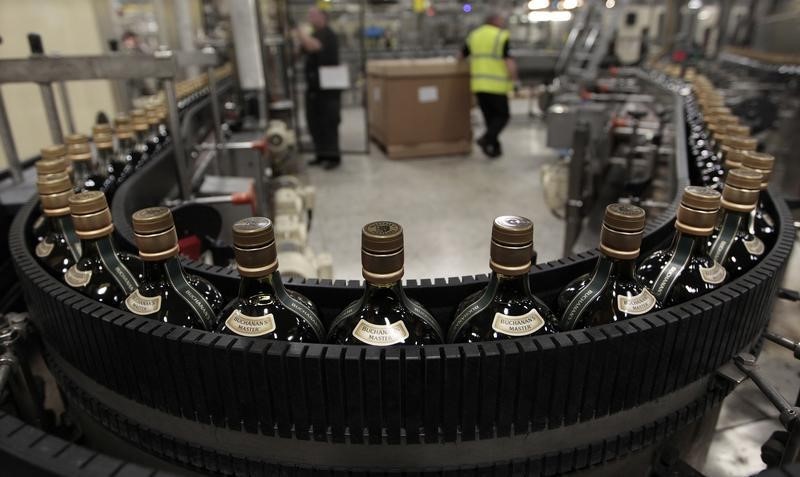LONDON (Reuters) - Diageo (L:DGE), the world's largest maker of Scotch whisky, is delaying plans to expand its production capacity in Scotland as a global economic slowdown curbs the world's thirst for the spirit.
In 2012, the maker of whiskies including Johnnie Walker, J&B and Talisker said it would spend over 1 billion pounds ($1.6 billion) over five years to expand Scotch production to meet growing demand in emerging markets.
Yet that demand growth has cooled, due to factors including a crackdown on extravagant spending by the Chinese government, recession in Brazil and currency devaluations in several countries.
That has hurt spending overall and led to disappointing quarterly results for most consumer goods makers, from Coca-Cola (N:KO) to Unilever (L:ULVR).
"The weaker global economic environment has impacted the growth of Scotch in certain markets and therefore Diageo will continue to review and adjust the timing of the next phase of our investment programme to manage our Scotch whisky inventory and to retain the alignment between growth in production volumes and growth in demand," a Diageo spokesman said.
As part of its 1-billion-pound plan, Diageo last year said that it would spend 50 million pounds to build a new malt distillery and 12 million pounds to expand an existing distillery in Teaninich, in the Scottish Highlands. It had announced other projects in Speyside and Sutherland as well.
The spokesman declined to comment on specific projects or give any timeframes.
Scotch made up 28 percent of Diageo's 2014 sales, which were down 1 percent at 10.25 billion pounds compared with the year before due to a sharp slowdown in emerging markets.
When measuring the amount of Scotch sold, Johnnie Walker saw volumes fall 6 percent last year, while J&B fell 7 percent and Buchanan's, which is big in Latin America and the Caribbean, fell 13 percent.
Meanwhile Diageo's Bulleit bourbon, which is still a young brand, saw its volume rise 66 percent last year amid a resurgence in the popularity of bourbon whiskey.

(1 US dollar = 0.6205 British pound)
(Reporting by Martinne Geller; Editing by Pravin Char)
